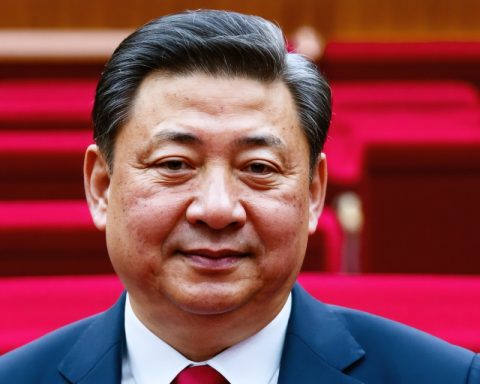Controversial Gesture at Rally Ignites Outrage
Elon Musk ignited significant backlash after performing a provocative arm gesture during a recent post-inauguration rally. Observers noted that the gesture bore a troubling resemblance to a historical Nazi salute, prompting widespread condemnation across social media platforms.
Tyler Gregory, the CEO of the Jewish Community Relations Council in San Francisco, expressed concern, stating that the action was interpreted starkly within the Jewish community. Many felt that Musk’s gesture could not only be offensive but was also misappropriated by extremist groups. He stressed the need for Musk to clarify his intentions behind the action to mitigate the misunderstanding.
This incident occurs amid a climate of rising antisemitism, which has surged since the onset of the conflict in the Middle East in October 2023. Teresa Drenick, deputy director of the American Jewish Committee, highlighted an alarming increase in hate speech and vandalism, including the spread of anti-Jewish graffiti and flyers across various regions.
Drenick emphasized that combating antisemitism requires a united front from all communities, urging allies to join the fight against hate regardless of its source. The episode surrounding Musk’s actions reinforces the urgency of addressing and reducing antisemitic sentiment, as communities seek peace and solidarity in challenging times.
Implications of Public Figures and Symbolic Actions
The incident involving Elon Musk serves as a critical reminder of the significant role that public figures play in shaping societal beliefs and cultural narratives. When influential individuals engage in controversy, the repercussions extend beyond immediate backlash; they reverberate through the fabric of society. Musk’s gesture, misinterpreted by many as a Nazi salute, risks normalizing extremist behaviors and may inadvertently lend credence to fringe ideologies, fostering a more polarized atmosphere.
In an era where social media amplifies voices and actions, the impact of a single gesture can ignite broader discussions on hate and acceptance. The rise of antisemitism, particularly in the context of the ongoing Middle Eastern conflict, reflects not only a localized issue but a global crisis, as tensions spill into communities worldwide. Statistics show that antisemitic incidents in the United States have surged over 400% in some regions since the beginning of the conflict, underscoring an alarming trend that requires urgent attention.
Looking ahead, the implications extend to the global economy as well. As societies grapple with intolerance, there may be economic consequences linked to boycotts and shifts in consumer behavior against brands and organizations perceived as aligned with divisive rhetoric. Furthermore, the potential for renewed calls for accountability from corporations connected to controversial figures could reshape corporate governance and ethical marketing practices.
In conclusion, as we navigate through these tumultuous times, the need for critical discourse and community solidarity becomes paramount. A unified front is essential not only in combating antisemitism but in promoting a culture of understanding and respect amid a backdrop of uncertainty and division.
Elon Musk’s Controversial Gesture: A Deeper Look into Rising Antisemitism and Community Reactions
The Controversial Incident
Elon Musk sparked widespread outrage after making a gesture during a recent rally that many perceived as reminiscent of a Nazi salute. This event has opened up discussions surrounding the implications of public actions by influential figures, especially in the context of rising antisemitism. The backlash highlights the sensitive nature of historical gestures and their potential interpretations in today’s society.
Historical Context and Reactions
Tyler Gregory, the CEO of the Jewish Community Relations Council in San Francisco, has been vocal about the concerns stemming from Musk’s gesture. He articulated the distress it caused within the Jewish community, with many interpreting it as deeply offensive. The context of this incident cannot be ignored, as it occurs during a time of heightened tensions and increasing antisemitic incidents globally.
Rising Antisemitism: Facts and Figures
Since October 2023, the world has witnessed a concerning spike in antisemitism. The American Jewish Committee reported a significant rise in hate speech and vandalism aimed at Jewish communities. Notably, the frequency of anti-Jewish graffiti and the distribution of extremist flyers has surged, amplifying fears among community members. In this climate, symbols and gestures, even when unintended, can evoke strong reactions and painful memories.
Community Responses
The urgency to combat antisemitism has never been more critical. Teresa Drenick, deputy director of the American Jewish Committee, called for solidarity among all communities to address hate speech and acts of vandalism. She stressed that a collective response is essential to foster understanding and resist divisive narratives.
Implications for Public Figures
Public figures, such as Musk, carry significant influence in shaping societal views. Their actions can lead to either positive dialogues or detrimental misunderstandings. Musk’s gesture, thus, raises important questions about the responsibilities of those in positions of power and the impact their behavior has on public sentiment.
Addressing the Issue
The Jewish community advocates for open dialogues around discomforting issues. Events like this can serve as a catalyst for education and awareness regarding antisemitism. It is crucial for individuals and organizations, including platforms like the American Jewish Committee, to continue their outreach and advocacy to foster an inclusive society.
How to Combat Antisemitism
1. Awareness Campaigns: Organizations are encouraged to run educational programs about antisemitism and its history to dispel myths and foster empathy.
2. Support for Affected Communities: Establishing support networks for those impacted by hate crimes can provide essential emotional and logistical assistance.
3. Engaging Allies: Collaboration with allies from various backgrounds can amplify efforts aimed at reducing hate and fostering community solidarity.
Conclusion
Elon Musk’s controversial gesture serves as a reminder of the importance of mindfulness in public discourse, particularly regarding historical sensitivities. As antisemitism resurges, it calls upon individuals and communities alike to work together to combat hate and promote understanding. The responsibility lies not just on public figures but also on all of us as members of a diverse society.













